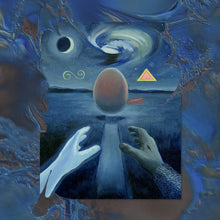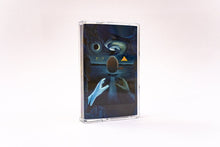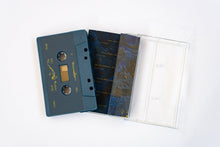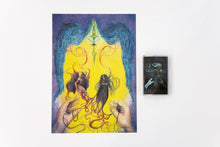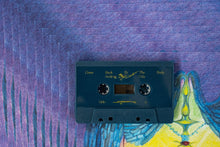
Mappa / Slovakia / 2022 / CS
sever, split, tear
come back
freeze, forget, neglect
come back
detach, withdraw, dream
come back
thrash, recall, engulf
come back
allow, receive, swell
come back
trust trust trust
The wound, as the saying goes, is the place where the light enters you. Even without a god though, the sensation of trauma, and the phenomenon of healing can be a sacred and enlightening experience. Experience always imparts something on those of us still here, for worse or for better. It’s this journey, from trauma to healing and understanding, that inspired Andrew Oda’s beautiful new album: Come Back To The Body. More delicate and plaintive than his previous work, but no less adventurous in its broad palette of synthetic and acoustic sounds, this music is the topography of a descent into the wisdom of the body, “as frightening and unsafe as it may feel” as the composer puts it.
A sweet piano, a gently plucked guitar, and a mournful cello sit alongside garbled synth melodies, rustling field recordings, and sweeping cosmic backdrops throughout, a mimic of the counterintuitive harmony of sensations that meet the traumatised body. Emotions become deformed and bleed into each other. A ruptured sense of oneself collides with engulfing thickets of tension, and yearning. Come Back To The Body demarcates a new step in Andrew Oda’s catalogue, evolving his previously synthesised sui generis ecosystem mockups, into a more natural reflection of the human self, in light of trauma and unknowable emotions best put into music.
Creaking synth chords hove into view on several of Oda’s new pieces, resembling the first rays of dawn and an imminent sense of absolution. A dull electric hum and submersible bass rumble similarly haunts many moments, like lingering tinnitus, only to be swept away by a host of fresh musical lifeforms, sounds, pulse, and melodies wandering spritely into Oda’s music. Healing isn’t simply the forgetting of a trauma; it’s the process of attuning to a wound and evolving into something new. It’s about moving towards a place “where true intimacy can happen,” as Oda describes it. “A place of forgiveness of self and other.”






